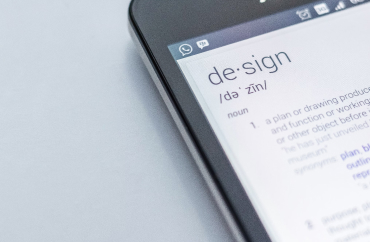# Gambling Addiction and Mental Health: The Connection
Gambling addiction rarely occurs in isolation. Understanding its relationship with mental health conditions is essential for effective treatment and recovery.
The Dual Diagnosis Reality
Co-Occurring Conditions
Research shows that 50-75% of people with gambling addiction also have:
- Depression and anxiety disorders
- Substance use disorders
- Attention deficit hyperactivity disorder (ADHD)
- Bipolar disorder
- Personality disorders
The Chicken or Egg Question
- Mental health issues may lead to gambling as self-medication
- Gambling addiction can trigger or worsen mental health problems
- Some conditions may predispose individuals to addictive behaviors
- Stress from gambling can exacerbate existing mental health issues
Depression and Gambling
How Depression Influences Gambling
- Gambling may provide temporary relief from depressive symptoms
- The excitement can counteract feelings of emptiness
- Social aspects of gambling combat isolation
- Hope for financial wins offers escape from despair
How Gambling Worsens Depression
- Financial losses increase feelings of hopelessness
- Shame and guilt compound depressive symptoms
- Social isolation deepens as gambling takes priority
- Self-worth becomes tied to gambling outcomes
Treatment Considerations
- Address both conditions simultaneously
- Antidepressant medications may help with impulse control
- Cognitive behavioral therapy targets both issues
- Support groups for dual diagnosis
Anxiety Disorders and Gambling
Anxiety as a Trigger
- Gambling may temporarily relieve anxiety symptoms
- The focused attention required can distract from worries
- Wins provide temporary confidence boosts
- Routine gambling creates illusion of control
Gambling-Induced Anxiety
- Financial stress increases anxiety levels
- Fear of being discovered creates chronic worry
- Withdrawal from gambling causes anxiety symptoms
- Social anxiety increases as relationships deteriorate
Bipolar Disorder and Gambling
Manic Episodes and Risk-Taking
- Elevated mood can lead to impulsive gambling
- Decreased need for sleep allows extended gambling sessions
- Grandiose thinking inflates confidence in winning
- Poor judgment affects financial decision-making
Depressive Episodes and Escape
- Gambling may provide stimulation during low periods
- Financial losses worsen depressive symptoms
- Cycle of mania and depression affects gambling patterns
- Medication compliance issues complicate treatment
Substance Use Disorders
Common Combinations
- Alcohol and gambling frequently co-occur
- Stimulants may be used to enhance gambling sessions
- Substances can impair judgment during gambling
- Cross-addiction between substances and gambling
Treatment Challenges
- Multiple addictions require integrated treatment
- Withdrawal from substances may increase gambling urges
- Social environments often involve both substances and gambling
- Recovery requires addressing all addictive behaviors
ADHD and Impulse Control
ADHD Characteristics That Increase Risk
- Difficulty with impulse control
- Seeking stimulation and excitement
- Problems with attention and focus
- Challenges with financial management
Treatment Approaches
- ADHD medication may reduce gambling impulses
- Behavioral strategies for impulse control
- Structure and routine in daily life
- Alternative activities for stimulation needs
Trauma and Gambling
Trauma as a Risk Factor
- Childhood abuse or neglect increases addiction risk
- Post-traumatic stress disorder (PTSD) may lead to gambling
- Gambling provides temporary escape from trauma memories
- Dissociation during gambling offers emotional numbing
Trauma-Informed Treatment
- Address underlying trauma before focusing solely on gambling
- Safety and trust-building in therapeutic relationships
- Understanding gambling as a coping mechanism
- Integration of trauma therapy with addiction treatment
Stress and Gambling Behavior
Acute Stress Responses
- Major life events may trigger gambling episodes
- Financial stress can paradoxically increase gambling
- Relationship problems often correlate with gambling increases
- Work-related stress may lead to gambling as relief
Chronic Stress Impact
- Ongoing stress changes brain chemistry
- Cortisol levels affect decision-making abilities
- Chronic stress reduces impulse control
- Long-term stress impacts overall mental health
Treatment Integration
Comprehensive Assessment
- Screen for all mental health conditions
- Understand the timeline of symptom development
- Identify primary vs. secondary conditions
- Assess medication needs and interactions
Integrated Treatment Models
- Simultaneous treatment of all conditions
- Coordinated care among multiple providers
- Medication management for co-occurring disorders
- Holistic approaches addressing whole person
Therapeutic Approaches
- Cognitive Behavioral Therapy (CBT) for multiple conditions
- Dialectical Behavior Therapy (DBT) for emotion regulation
- Mindfulness-based interventions
- Family therapy addressing all conditions
Recovery Considerations
Medication Management
- Some psychiatric medications may affect gambling urges
- Monitoring for medication interactions
- Addressing side effects that might trigger gambling
- Regular psychiatric follow-up during recovery
Lifestyle Factors
- Sleep hygiene for mental health stability
- Regular exercise for mood regulation
- Stress management techniques
- Social support system development
Relapse Prevention
- Identifying triggers for both gambling and mental health symptoms
- Developing coping strategies for multiple conditions
- Creating support networks aware of all issues
- Regular monitoring and early intervention
Family Impact and Support
Understanding Complex Needs
- Family education about co-occurring disorders
- Support for families dealing with multiple issues
- Resources for family members' own mental health
- Communication strategies for complex situations
Recovery Environment
- Creating supportive home environment
- Reducing stress and triggers
- Encouraging treatment compliance
- Celebrating progress in all areas
The relationship between gambling addiction and mental health is complex, but understanding these connections enables more effective, compassionate treatment approaches.




